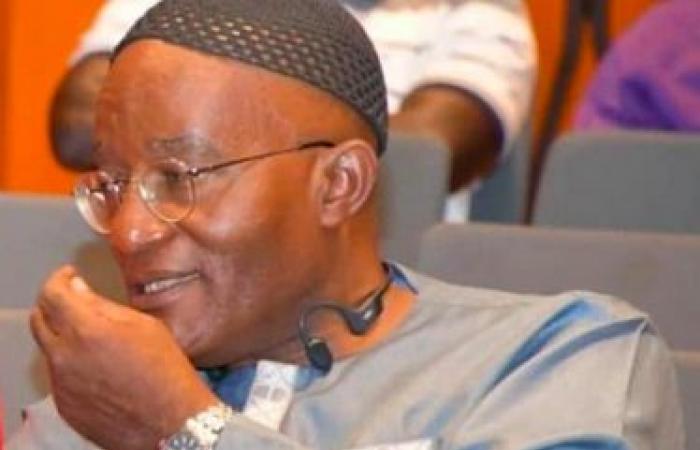A very clumsy reaction from the minister, Yassine Fall, of whom we say that the interests of her country must be very foreign to her, gave extraordinary magnitude to a declaration by a United Nations body. All of Senegal welcomed the United Nations announcement of the upcoming removal of Senegal from the list of Least Developed Countries. The press release had also clearly indicated that the withdrawal launched a five-year process at the end of which the withdrawal would be definitive. It did not take long for the services of the Ministry of African Integration and Foreign Affairs, under the leadership of Ms. Sy Yassine Fall, to try to cool the enthusiastic momentum that gripped the Nation.
No doubt taking herself for Prometheus who has just offered fire to humanity, Ms. Fall has, through the press release from her services, pushed a wide open portal: “A period of 5 years has been set aside to allow Senegal to prepare its exit from this category. It is at the end of this transitional period that the withdrawal could be pronounced.” And to show that the government to which she belongs does not intend to be distracted by what she presents as “allegations”, regarding a press release from the highest international body in the world, Minister Fall Yassine assures: “In order to avoid any disruption to its development program, the government is working to develop a national strategy for a smooth transition, based on its new public policy framework entitled “Senegal 2050: National Agenda for Transformation.”
We wonder whether, in developing their press release, the services of the Ministry of African Integration took the time to read the text of the United Nations AG Resolution dated December 19, 2024. It is clearly specified there. that the UN has decided “to grant Cambodia and Senegal, exceptionally, a five-year preparatory period leading to their withdrawal from the category of Least Developed Countries”. The document concludes by inviting Senegal and Cambodia “to develop, during the period of 5 years which will elapse between the adoption of this resolution and their withdrawal from the category…, a national strategy for smooth transition, with the assistance from United Nations agencies and in collaboration with their bilateral, regional and multilateral development partners. A political figure of the caliber she claims should have welcomed the progress made by her country to reach this level, and have the humility to recognize the efforts that her regime will have to make in order to meet expectations.
This departure from the road of Minister Yassine Fall, coupled with the thunderous silence of those in power, especially in the face of the triumphalist declarations of the members of the APR, party of former president Macky Sall, who did not hesitate to emphasize that this are the efforts of their regime which led to the result that Mrs. Sy Yassine Fall would like to put into perspective in her press release, strongly betraying the unease in the ranks of Pastef.
It is undeniable for all observers that Senegal has made giant strides in achieving the criteria required to exit the LDC category. Already, in October 2023, a column on this same page indicated that in terms of gross national income, Senegal had already exceeded the United Nations conditionalities, as well as for the Human Capital criterion. The sticking point was the Human Capital Index, with which the country continues to struggle. It must be believed that between the time we wrote this column and today, the government of Mr. Macky Sall must have accomplished a lot, to earn us this remark from the United Nations General Assembly.
What should worry Ms. Yassine Fall’s friends is the time they have left to transform the United Nations test. In October 2023, we said this: “No doubt there are advantages to remaining in the LDC category. We borrow at concessional rates. We benefit from certain facilities in terms of exporting our products to more developed countries. On the other hand, so to speak, we cannot have a competitive economy if we always have to export our raw materials without processing them locally, thus accentuating the level of unemployment among our youth. Furthermore, we will find ourselves with a totally extroverted economy, which will have to rely on foreign trade to feed its population.
When you have, before anyone else, declared your country in ruins and assured that nothing good has been done there during the previous 12 years, you can be seized with fear at the mission of keeping it on a growth trajectory. inclusive. Let’s not forget that the United Nations Committee for Development Policy evaluates the efforts of countries every 3 years, to ensure that they have not faltered in their efforts to exit the category. The five years granted to Senegal will essentially be used to verify that the country maintains its efforts in each of the categories concerned. Remember that to exit the LDC category, a country must reach the exit thresholds established for at least two of the 3 categories. The CDP reviews the list of LDCs every three years. For each criterion, countries must have exceeded the exit thresholds for at least 3 years in a row, to guarantee that they will not fall below them again.
Difficult today, whatever the conclusions of the Court of Auditors, of which no one understands anymore why they are so late, to admit that Senegal was put in ruins during the 12 years of Macky, and can, just upon departure, be downgraded. Sonko’s government, which is struggling to keep its promises on the economic and social level, is undoubtedly wondering what it will have to go through in order not to lower the bar below the criteria imposed by the Emerging Senegal Plan (PSE). by Macky Sall. We know that many Senegalese undoubtedly dream of seeing the oil and gas, the exploitation of which has just begun, making it possible to further improve our balance of payments and reduce our dependence on the export of essentially agricultural products or gold which, incidentally, has been our number one export product for a number of years.
People will certainly not want to accept that our optimism is dampened. But we should remember that countries like Angola, very rich in oil and a military power in Central Africa, and Zambia, whose mining resources, especially copper, are world class, are part of the LDCs. This means that political and economic governance and the fight against social inequalities are important elements. To which we will also have to add good economic diplomacy, so as not to be too quickly put into competition with countries better equipped than us.
Let us not forget that, as a non-LDC country, our trade relations with countries of the European Union and the United States of America in particular, will evolve. The Everything But Arms (Tsa) initiative which allowed us to export to European countries without quotas or customs risks being withdrawn from us, now that we are moving towards the export of our hydrocarbons. For our fishery and agricultural products, we risk seeing fairly significant customs duties applied to us, especially since we do not seem to be preparing for them, given the reaction of our minister. In addition, being Pma, we had problems fulfilling our export rates to the United States within the framework of Agoa (Africa growth opportunity Act), which allows exports to Uncle Sam’s country. Will things be made easier for us as we prepare to change category? By becoming a producer and exporter of hydrocarbons, we will not be given any favors compared to countries like Nigeria, Algeria or even Saudi Arabia, if we export to countries with which we do not have a relationship. bilateral trade agreements.
All these challenges, which will have an impact on the economic and social policies of the State, must already be anticipated, and not reduced to simple exercises of competition between incoming and outgoing political regimes. By leaving, Macky Sall has not demolished everything he has achieved in twelve years. The new power does not have to insist on reducing the prowess of its predecessors to nothing, especially since it continues to benefit from it, and on all levels. It would be wise for our authorities to prepare, at the end of the 5-year period, to be able to demonstrate that they were able to meet the challenge and definitively remove the country from the LDC group.
Let us not forget that in his time, President Abdou Diouf, faced with a situation threatening ruin, saw fit to take refuge under the mantle of LDCs, which allowed him to benefit from the advantages linked to this situation. Abdoulaye Wade, who had accused him of “lack of ambition”, did not see fit to leave, having taken all the benefits of his predecessor’s policies. Macky Sall, who began the exit process, can only be happy, 5 years later, to see that his efforts have not been in vain.






